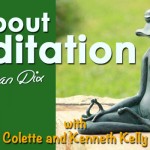Updated February 12, 2014.
What is Qigong? (also spelled Ch’i Kung)
Qigong is a powerful system of healing and energy medicine from China. It is the art and science of using breathing techniques, gentle movement, and meditation to cleanse, strengthen, and circulate the life energy (qi). Qigong practice leads to better health and vitality and a tranquil state of mind. This video by ABC Australia shows us the many ways people are benefiting from the practice of Qigong.
Millions of Chinese get out of bed for it every morning. A qualified physiotherapist uses it to treat her patients. People break bricks in half with it. And it’s more dedicated followers believe that it can help beat cancer. Followers believe that Qigong energy can be transferred from one person to another. They say that mice infused with Qigong energy can swim longer than mice without it. In China mass healings are carried out using the energy. There is no doubt Qigong keeps its followers fit and healthy. And although there is skepticism about its more tenuous abilities, for millions of Chinese, Qigong works.
What is Qigong?
And here’s an article excerpt by Chris Wanjek from Live Science. It helps you distinguish between Qigong and T’ai Chi.
Certain slow movements seen in qigong look similar to t’ai chi. One could argue that t’ai chi developed from qigong. Yet the practices are very different. Most t’ai chi movements, as slow as they may seem, are associated with fast and powerful martial arts movements. The qigong movements are instead associated with cultivating the chi energy flow.
T’ai chi originated as a form of exercise and martial arts only a few hundred years ago. In contrast, Qigong has a far deeper spiritual or paranormal base that many today would describe as pseudoscience, with various characteristics — touch healing, distance healing, levitation — that clearly violate known laws of physics.
However, unlike with t’ai chi, there is a dearth of high-quality studies showing the healing benefits of qigong, either as an exercise or as a paranormal force. There is less controversy about the exercise aspect, when limited to gentle movements and relaxation.
You can read the full article here.
What is Qigong for you? How do you practice?


